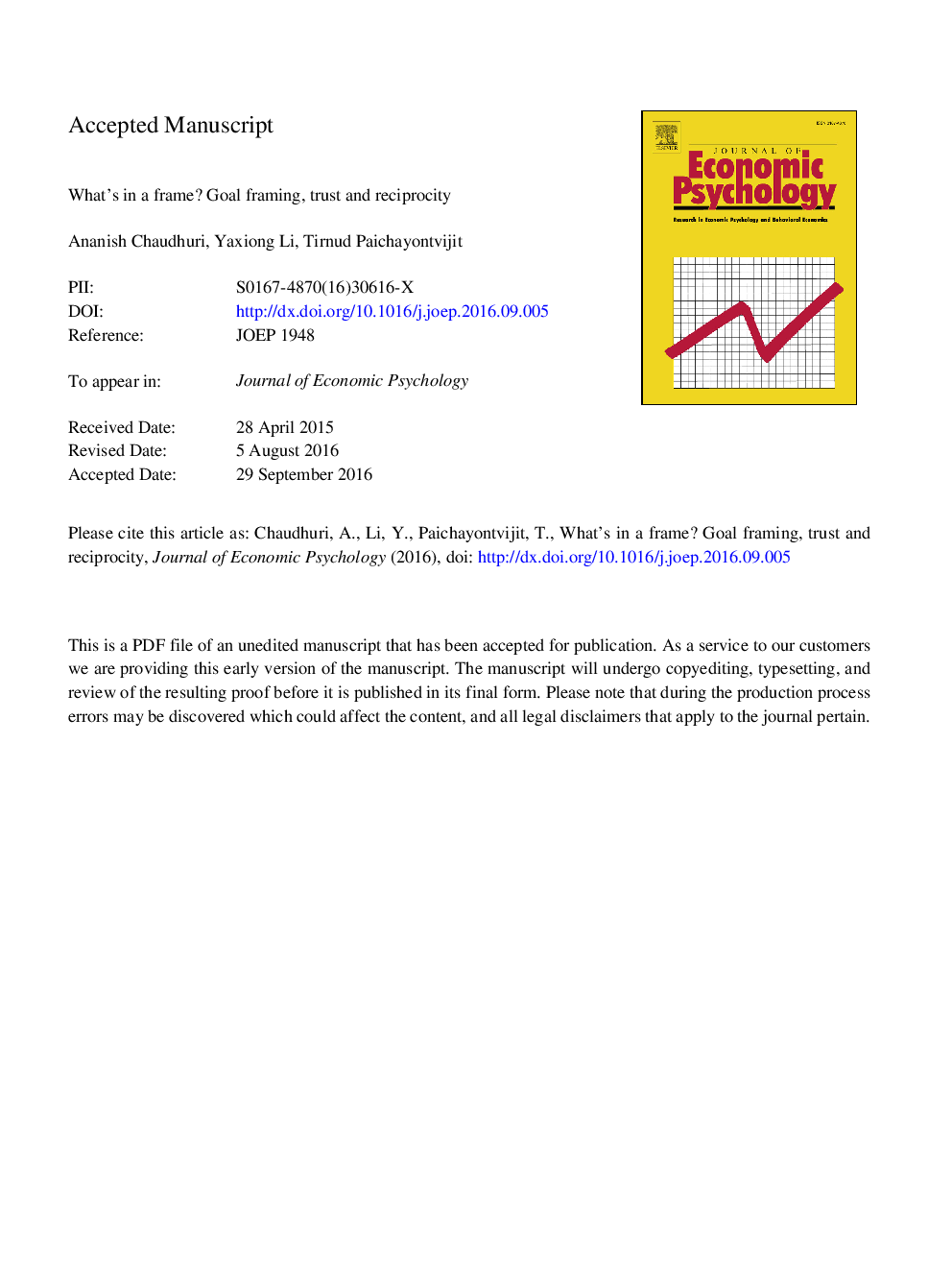| Article ID | Journal | Published Year | Pages | File Type |
|---|---|---|---|---|
| 5034820 | Journal of Economic Psychology | 2016 | 51 Pages |
Abstract
Economists often rely on the Berg et al. (1995) trust game, or variants thereof, to identify levels of trust and reciprocity, which are fundamental to discussions of social capital. But to what extent is behavior in this game sensitive to the way the instructions are framed? We use the Berg et al. trust game played for ten rounds with random re-matching to study this. We implement a number of variations in the way the game is presented to subjects. We show that levels of trust, reciprocity and returns to trust are significantly higher under “goal framing”, which highlights the conflict inherent in the game, between self-interest and maximizing social surplus. Furthermore, with such framing, trust measured via the experimental game exhibits significant positive correlation with trust measured via the Social Values Orientation questionnaire.
Related Topics
Social Sciences and Humanities
Business, Management and Accounting
Marketing
Authors
Ananish Chaudhuri, Yaxiong Li, Tirnud Paichayontvijit,
